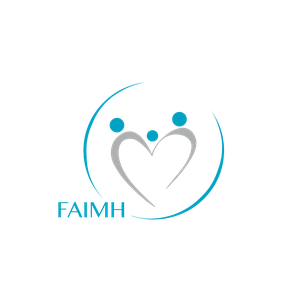Training Academy: Identity, Intersectionality, and Reflective Practice: Deepening Self-Awareness
Event Details
Presents...
Identity, Intersectionality, and Reflective Practice: Deepening Self-Awareness
Designed to meet the 3-hour training in Reflective Supervision/Consultation requirement for Endorsed Reflective Supervisors when renewing their Endorsement.
As IECMH providers, we know that babies’ development occurs within relationships, culture, and community. Similarly IECMH providers recognize that high-quality IECMH services must occur within relationships, specifically reflective supervisory relationships. However, it is only recently that our field has formally committed to deeply exploring the impact of culture and context, specifically issues related to race, power, oppression, and liberation, in the families we serve, in our field, and in ourselves.
Reflective supervision is an obvious forum for intentional and critical examination of our systems as well as ourselves. When we use this space and the parallel process to recognize and address how dynamics of power, privilege and oppression are played out in the consultant-supervisor-supervisee-client-family relationship, we can work to intentionally break cycles and truly see and hold the families with whom we work.
This presentation will discuss the current efforts to expand reflective supervision to include a diversity-informed perspective. Focus will be on the primacy of self-awareness, and participants will have the opportunity to engage in reflection around their own identities and social positions and how these influence their work.
After this 3-hour presentation, participants will be able to
- Describe critical self-awareness and its connection with reflective practice.
-
Describe how their identities and social positions impact their values, beliefs, and perceptions and their ability to hold babies and families in mind.
-
Describe how the agreements of courageous conversations can be used in reflective supervision.
-
Describe how their intersecting identities and social location can serve as protective or vulnerability factors for secondary traumatic stress and describe the role of diversity-informed reflective supervision/practice as a protective factor.
Trainers
Mindy Kronenberg, PhD, ECMH-E is a clinical psychologist in private practice in Memphis, Tennessee. She is Adjunct Clinical Professor at Louisiana State University Health Sciences Center and an affiliate member of the National Child Traumatic Stress Network. Dr. Kronenberg’s clinical and research interests include infant mental health, the assessment and treatment of trauma across the lifespan, psychological first aid, and the impact of trauma on young children. She has written numerous book chapters and articles for peer reviewed journals, frequently presents at conferences related to trauma and disaster, and is a national trainer for child–parent psychotherapy.
Carmen Rosa Noroña, LCSW, Ms.Ed., CEIS, is from Ecuador where she trained and practiced as a clinical psychologist. For over 25 years, Carmen Rosa has provided clinical services to young children and their families in a variety of settings including early intervention, home-based, and outpatient programs. She currently is the Child Trauma Clinical Services and Training Lead at Child Witness to Violence Project and is the Associate Director of the Boston Site Early Trauma Treatment Network at Boston Medical Center. She is a Child-Parent Psychotherapy National Trainer a DC: 0-5 faculty and one of the founding members of the Harris Professional Development Network Tenets Working Group. Her practice and research interests are on the impact of trauma on attachment; the intersection of culture, immigration, and trauma; diversity-informed reflective supervision and consultation; and on the implementation and sustainability of evidence-based practices in real-world settings. She is a co-chair of the Culture Consortium of the National Child Traumatic Stress Network, and has adapted and translated materials for Spanish-speaking families affected by trauma. Carmen Rosa has also contributed to the literature on infant and early childhood mental health and diversity. Carmen Rosa was the recipient of the Massachusetts Children’s Trust Fund Emerging Leader Award (in 2003) and the NASW-MA Emerging Leader Award (in 2018).
When: Thursday September 30, 2021
1:00-4:00pm Eastern/ 12-3pm CT/ 11am-2pm MT/ 10am-1pm PT
Who: Endorsed Reflective Supervisors, and Infant Family Specialist (Category 2), Infant Mental Health Specialist (Category 3) or Infant Mental Health Mentor (Category 4) professionals who have experience with Reflective Supervision/Consultation and would like to further their training in Reflective Supervision/Consultation
Registration
This training will be held online via Zoom.
Zoom link info will be sent to fully paid registrants the day before the training.
Certificates & Continuing Education Units
Certificate: A certificate of completion will be provided to all who sign in.
CEUs: Continuing education (3 hours) for licensed clinical social workers, marriage & family therapists, and mental health counselors will be offered by the Florida Association for Infant Mental Health, an approved provider for continuing education by the Florida Board of Clinical Social Work, Marriage & Family Therapy, and Mental Health Counseling (CE Provider #50-30846).
Continuing education (3 hours) for psychologists will be offered by the Florida Association for Infant Mental Health, an approved provider for continuing education by the Florida Board of Psychology (CE Provider #50-30846).
View our Training Academy Policy on attendance, payment, cancellation and more.
Questions? Email us.




